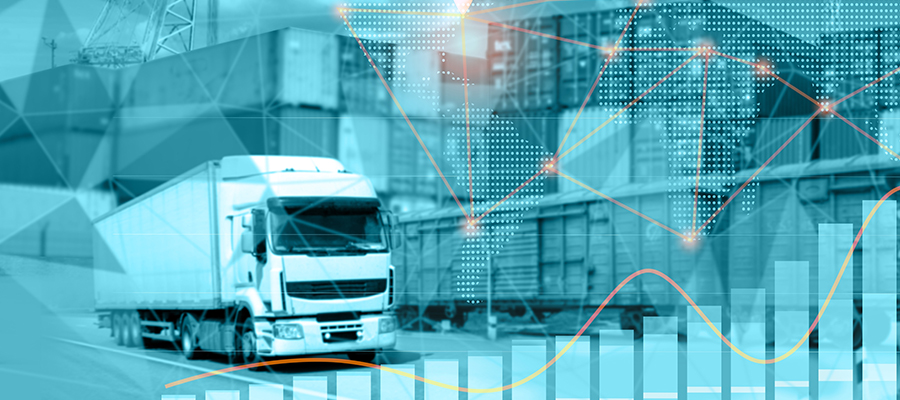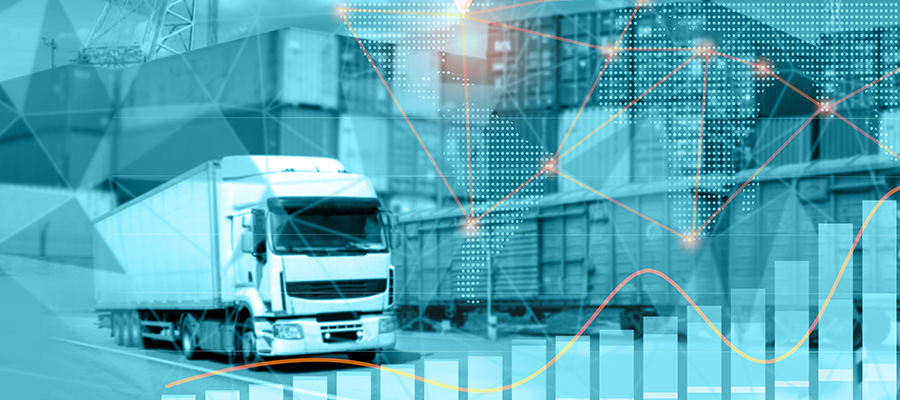In the world of logistics, change is a constant. The years since the Covid-19 pandemic are proof that the industry is constantly evolving and innovating, alongside its challenges, giving it the robust qualities of resilience and adaptability. While residues from the pandemic and the current geopolitical factors are likely to have a ripple effect in the sector in 2024, significant transformations are in store for this industry, powered by technological advancements and digital leapfrogs, changing consumer expectations, and global economic shifts.

These scenarios of change present numerable opportunities to the logistics industry. However, to be able to effectively encash the opportunities and be future ready, it is crucial to identify challenges and stay in tune with ongoing and upcoming trends that can be catalysts for success and vigour.
Trends going forward:
Digitalisation and Automation for building resilience in operations
End-to-end digitalisation is the need of the hour, and more and more traditional businesses in the logistics and freight forwarding landscape are investing in advanced technological solutions to augment service quality as well as streamline internal processes with optimised monitoring and management. Digital technologies like artificial intelligence, machine learning, and automation are becoming integral to logistics operations. New technologies and digital tools also offer extreme ease for customers at the time of service booking and on-boarding, with maximum transparency and visibility throughout the supply chain cycle. For example, use of Generative AI, a subset of AI, helps with analysing and learning on the go, as well as from historic data, and in optimising transportation routes, saving costs, and bringing overall efficiency.
Blockchain integration for enhanced transparency
Adoption of Blockchain has gained momentum in the industry. Blockchain ensures transparency and traceability across the entire process, reducing errors and delays, and provides a secure, decentralised ledger for real-time information sharing among stakeholders. The World Economic Forum estimates that by 2025, 10% of the global GDP will be stored on blockchain platforms. This trend is especially impactful for the logistics and freight forwarding industry, being the backbone of global trade. This technology has the potential to revolutionise how information is shared and verified among all stakeholders.
E-commerce boom and importance of last mile delivery:
The era of the Covid-19 pandemic has brought a paradigm shift in the way the world shops and acquires essential and non-essential goods, with consumers adapting to e-commerce options. This change in consumer behaviour is likely to dominate the landscape of the logistics industry in the year 2024, and is a true catalyst for global trade. In this scenario last mile deliveries play a crucial role in the industry’s success.
According to a report by the World-Economic forum, demand for urban last-mile delivery is expected to grow by 78% by 2030, with the requirement of 36% more delivery vehicles in top 100 cities globally. This trend is packed with opportunities as well as challenges for the upcoming year. It is estimated to add about 30% carbon emissions in the top 100 cities in a business-as-usual scenario, which brings us to the next trend on the cards for the logistics industry, one that has shaped its discourse for many years now:
Sustainability initiatives
According to a report by a leading consulting firm, the focus of the logistics industry is rapidly and decisively shifting toward reducing scope 3 emissions which are incurred throughout the value chain, in contrast with the traditional method of collection of scope 1 (direct emissions) and scope 2 (purchased electricity). Green logistics come with tremendous advantages, such as enhancing long term profitability and a robust business model. The year 2024 will see the industry rapidly undertaking more and more sustainability initiatives, such as adopting to clean fuel to clock more green miles. This has become all the more evident as key players from the industry have stressed accelerating decarbonisation of the logistics industry, at COP28.
Data security
As the world of cargo digitizes, data security is gaining centre stage in the debate for resilience. In 2024, a likely trend that will emerge is increased focus and investment on data security in the spirit of customer centricity. Protecting sensitive data also has tremendous implications for the safety of cargo and for security of the supply chain of businesses trusting their logistics partners with precious goods. With the adaptation of new technologies, newer ways of ensuring data and cyber security are evolving, and the upcoming year is likely to see massive investments on this front.
Challenges of escalating costs
Escalating costs are likely to be a major challenge for the logistics and freight forwarding industry in 2024 owing to a number of factors in the areas of Global trade and geopolitical conditions in various parts globally. These include the increase in cost for transiting through the Suez Canal from Asia, rise in fuel prices, the changing consumer behaviour, and congestions in the Panama Canal. These can affect transit routes, production, and supply of resources. The challenges come at a time when profit margins for the industry are shrinking in contrast to the scenario during the Covid-19 pandemic.
Conclusion
While the industry is looking at a diverse range of opportunities and challenges, innovation and adaptability are two golden rules that have always lent this field its resilience. In 2024, there will be significant steps towards creating an environment that is sustainable, with initiatives to reduce emissions, digitalisation and adopting new technology, and navigating changing consumer behaviour.














